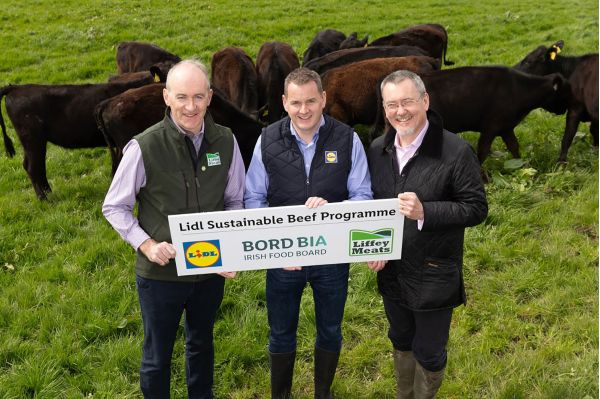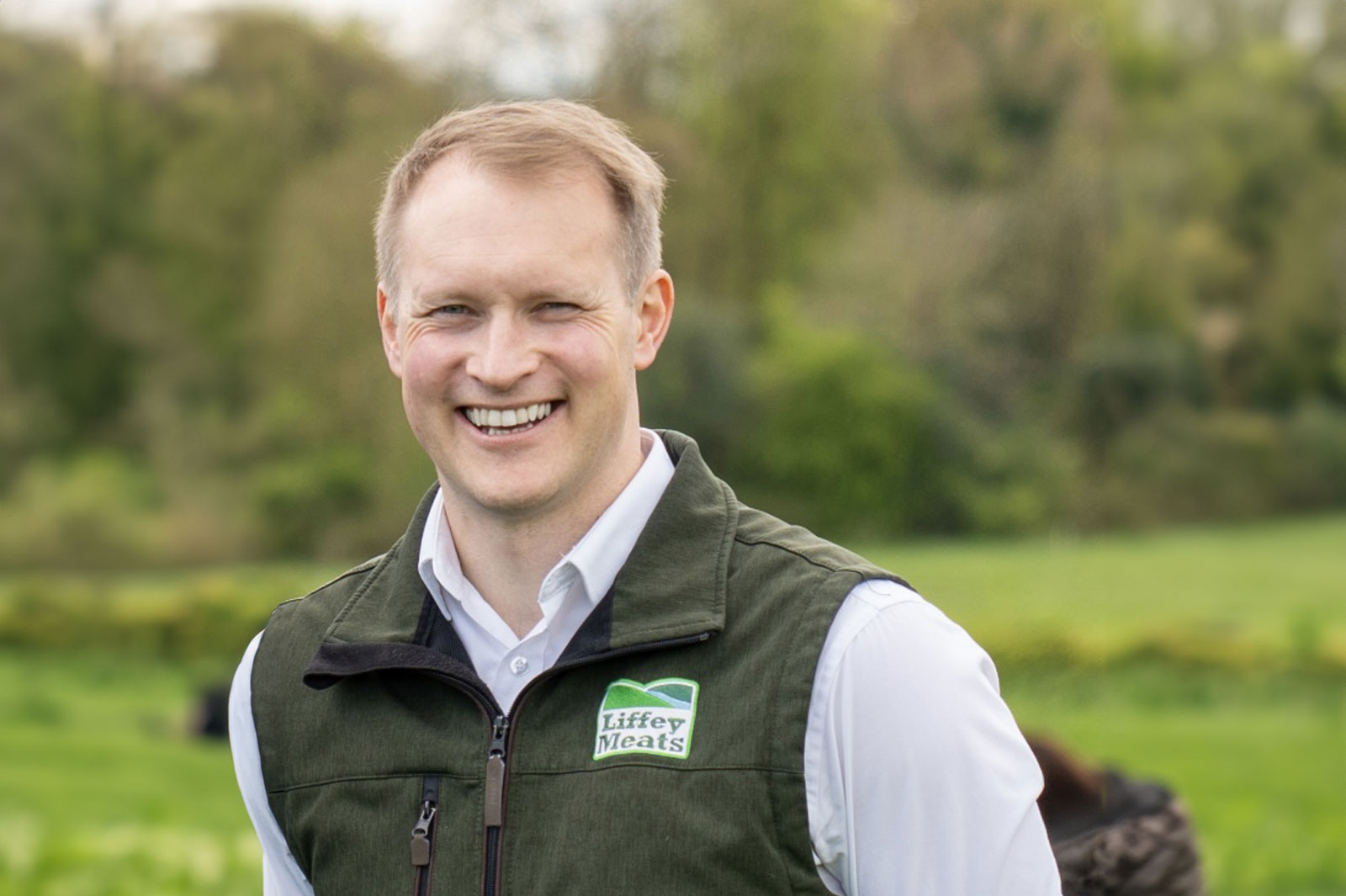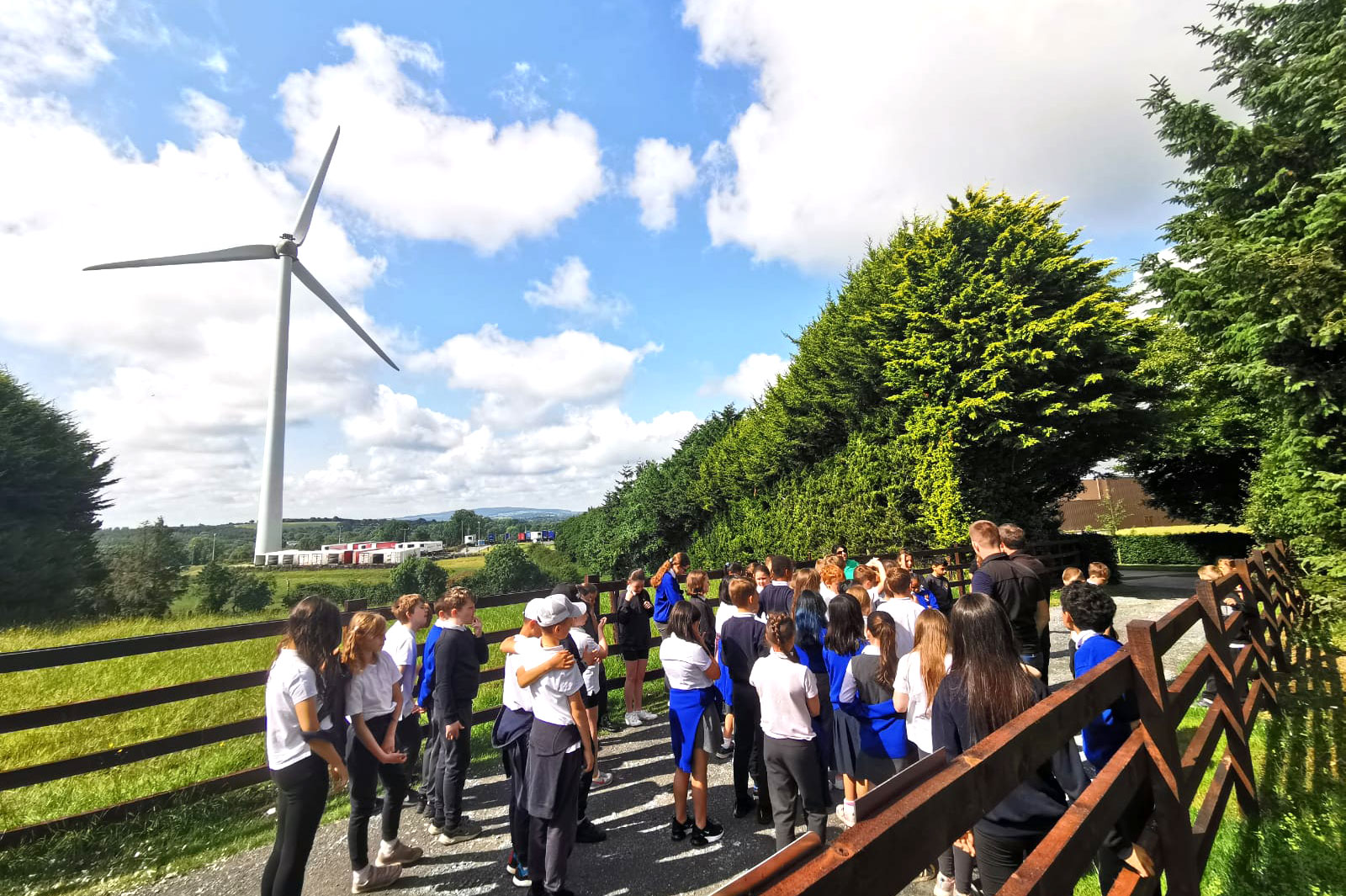Achieving supply-chain sustainability

Farmers adapting their practices to become more sustainable is certainly not a new concept. While the majority of climate- and environmental-related headlines appear to pertain to the dairy-sector, the beef side, too, is playing an important role in helping agriculture to achieve its 25 per cent emissions-reduction target. Reducing finishing age, improving herd health and implementing better breeding-management strategies are just some of the actions being taken by beef farmers.
And the beef-processing side, too, is part of this change. According to Meat Industry Ireland (MII), since 2015, its beef-processing members have invested more than €150m in a range of sustainability initiatives and have achieved important results on behalf of the sector. Working within the remits of Origin Green and the Sustainable Beef and Lamb Assurance Scheme, both run by Bord Bia, are just some of the ways the sector has been doing its bit.
Now, for the first time in Ireland, a retailer has come on board to, in its own words, help ‘implement innovative sustainable farming practices in order to reduce carbon emissions associated with beef farming’. An initial investment of €200,000 has been committed over four years, according to Lidl, which will also ‘create greater awareness of the environmental challenges associated with beef farming among consumers and to share insight on the initiatives undertaken by the participating farmers to make beef more sustainable’.
More than 20 beef farmers currently supplying Lidl, through Liffey Meats, from counties Cavan, Galway, Longford, Meath, Roscommon, Westmeath, and Wexford have signed up, to date, and according to the retailer, that number is expected to double over the coming months.

Christopher McGowan, Liffey Meats sustainability manager.
Significance of scheme
The sustainability programme comprises four ‘scopes’ Christopher explains. These are concerned with: reducing greenhouse gas (GHG) emissions and carbon footprint; allocating areas of biodiversity; improving water quality; and animal-welfare training and practices. “And within those four scopes, there is an array of various actions pending geographical location or farming model that each farmer must execute,” says Christopher. “All those actions are calculated and measured through the AgNav platform overseen by Bord Bia, which verifies that they have been carried out. Liffey Meats then sources the cattle from the participating farmers that have implemented the required sustainable practices," he adds.
The programme is very much in its infancy and, as such, the impact to participating farmers’ bottom lines is not quantifiable, but there are other benefits, according to Christopher. Farmers want to play their part in the climate movement and, ultimately, to be able to produce sustainable beef that meets customers’ demands and delivers on consumers' expectations. This programme will help them along that journey.
He comments: “We all have a part to play, as we are all part of the one supply chain, that’s our collaborative approach. From their point of view, farmers want to be in the know, and compliant with regulations that will come down the supply chain to [help us] hit our 2030 and 2050 targets. There is a keen interest in protecting their business; they want to maintain their level of production and throughput. They also want to protect their livelihoods for future generations,” he says.
“This is really phase one of the programme, as such, and how this looks in the next 15-20 years remains to be seen. But there are benefits to farmers already. We have carried out soil testing, we will prescribe nutrient-management plans, we are working with them to improve water quality, and we will assist them with animal-welfare training and practices. So, we are very much providing farmers with a service to understand where they are at and where they need to get to on their sustainability journey."
A statement from Lidl referred to the programme as being very much at its ‘embryonic stage’. It added: “Over the coming years and as more of our supplier farmers participate in the programme, we will work with our partners at Bord Bia and Liffey Meats on how we can best support the expansion and development of the programme.” The retailer also said that it will assess over the coming years what support it can provide as the programme develops.
Collab is key
But what sets this sustainability programme apart from the range of climate-focussed initiatives that are already in place across the sector, and being undertaken by farmers? For one, collaboration between farmer, processor and retailer, such as this, is unique. Lidl is the first retailer to launch such a programme.
And, as well as that, the existing relationship between Liffey Meats and its farmer suppliers is very important in the overall strength of the collaboration. Christopher says: “It is a more intimate relationship that we have. We are actively engaging with the farmers on the ground. For example, I have been out myself doing soil testing, along with other parties, and with the farmer. We are a familiar face. We have long-established relationships with the participating farmers. We share knowledge on what the retail markets demand as regards carcase finish, muscle conformation and fat score. There is very much direct engagement on the ground with familiar faces. We are all working together to deliver a sustainable product."
Challenges and changes
The challenges to farmers in achieving climate and environmental markers, as well as the on-farm changes that are being made to reach them, are important to communicate to consumers. Christopher agrees that Lidl has a role to play in educating consumers: "Lidl has always been very informative to consumers on the origin of their beef. I have no doubt that they will be instrumental in sharing the knowledge of what’s involved in sustainable beef sourcing and processing to the consumers. It is important that the consumer understands what’s involved because you would like to think that it would be a more preferred option on a retail shelf considering that it’s a sustainably sourced product, but in order to get that message across to the consumer you need to be able to demonstrate that the product has had a positive impact on the supply chain, rural Ireland and the environment."
But it also requires consumers to pay more for more, right? Christopher comments: “If the consumer is educated about what it takes to get a product to that stage [sustainably produced] you would like to think that people would pay more for higher quality, responsible sourcing, better animal welfare, that there is no negative impact along the supply chain.”
The use of the AgNav sustainability platform also gives it teeth, says Christopher. Jointly developed by Teagasc, the Irish Cattle Breeding Federation (ICBF) and Bord Bia, the AgNav platform utilises the collective knowledge of the three agencies to provide farmers with data, decision-making tools and guidance to help them meet emissions targets on their farms. “It gives it real substance and accreditation, with real calculations and measurement tools, and science,” says Christopher.
All Liffey Meats farmer suppliers who are involved in this sustainable beef programme are now signed up to this digital-data platform, Christopher says, and any new farmers will follow suit. “We will be holding workshops for farmers on how to navigate the tool. But the beauty of AgNav is that it gives farmers access to practical and attainable solutions to continue their responsible and sustainable beef production.”

Students from the local primary school in Ballyjamesduff participating in the Liffey Meats Green Academy programme as part of its Corporate Social Responsibility. Also in view is Liffey Meats' 3MW wind turbine that’s operational since 2018.
Lidl’s VIEWPOINT
JP Scally, chief executive officer of Lidl Ireland and Northern Ireland said: “The industry faces a significant challenge in reducing its environmental footprint and, as a responsible retailer, we know that we have an important role to play in supporting our beef farmers to reduce their environmental impact. We appreciate that this issue is very important to our customers as well, and that is why we will be keeping them informed of developments from the Lidl Sustainable Beef Programme as our farmers trial new methods and processes to make Irish beef a more sustainable product.”
Future
With positive momentum behind the launch of a programme such as this, Christopher shares his thoughts on the future and what it might hold for the agri-business sector, generally: “Ninety per cent of our product is exported so we need to be to the fore on initiatives such as Bord Bia’s Origin Green, of which Liffey Meats is a gold member, so I see that as a real fundamental requirement for agri-businesses to operate and grow within the food sector. That includes reducing greenhouse gas emissions, improving biodiversity, improving water quality, and working with our suppliers. So, considering how heavily dependent we are on export markets, we have to be the most attractive and appealing to customers internationally and show them what we are doing from an environmental impact point of view.
Customers, in general, both domestically and internationally can buy our products in confidence that our supply chain has had a positive impact both socially and environmentally on the environment."
Christopher outlines some of the practical measures that Liffey Meats is taking in order to operate with a smaller carbon footprint and environmental impact: “We installed a 3MW wind turbine in 2018, and are establishing a 4MW solar farm on 14 acres of land. Between the solar panels and the wind turbine, we will be using 100 per cent renewable energy that is being produced here on site. We are also a partner of the All-Ireland Pollinator Plan.
“We also work locally with primary and secondary schools through our Liffey Meats Green Academy Programme, educating local kids on the topic of sustainability, reducing, reusing recycling, biodiversity. Our science-based targets on our scope 1, 2 and 3 emissions have now been approved. All these things have a positive impact on the supply chain. That is the journey we have gone on to play our part in having a more sustainable supply chain and to make a positive impact on the environment.”
A FARMER'S VIEWPOINT
Joseph Smyth is one of the first farmers to sign up to the new Lidl Sustainable Beef Programme. He said that as a growing and future-focussed business, they are delighted to be part of an industry-leading programme designed specifically for Irish beef farmers. “With direct access to support from Bord Bia, Liffey Meats and Lidl Ireland, this programme will be a major step forward, it will help us become more sustainable and make our business more efficient at the same time, ultimately delivering the product that the consumer wants.”





